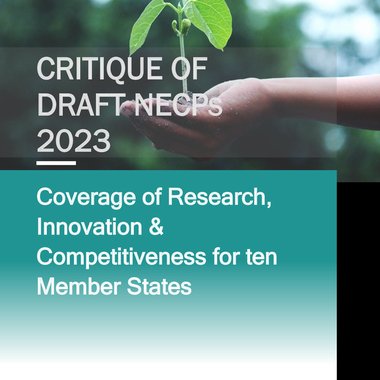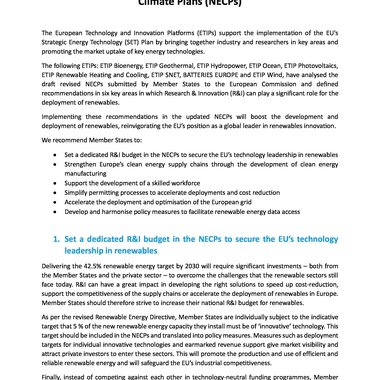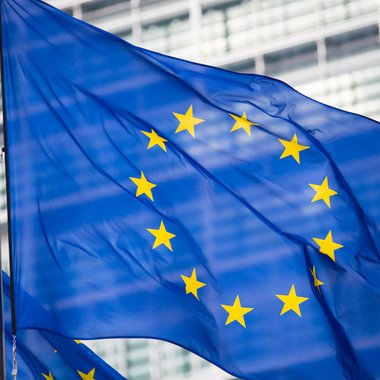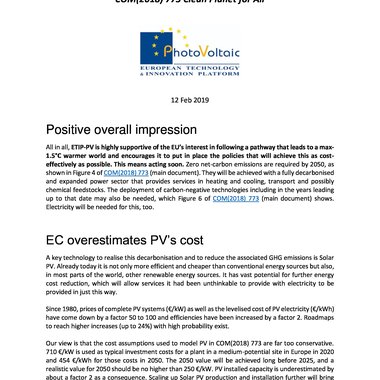Policy documents

Critique of Draft NECPs 2023 coverage of Research, Innovation & Competitiveness for ten Member States
The NECPs will, as the European Commission noted, need a “renewed and stronger focus on competitiveness, innovation and investments within the Energy Union.” With the Net Zero Industry Act agreed and set to become law by the time final version of NECPs must be submitted (30 June 2024), Member States should, in the time remaining, anticipate their obligation under Article 30 of NZIA to “take [it] into consideration” in NECPs, particularly regarding the dimension “research, innovation and competitiveness”.

Joint recommendations of ETIPs on the draft revised National Energy & Climate Plans

5% Innovative Renewable Energy Solutions
ETIP-PV supports “at least 5% innovative renewables” in Renewable Energy Directive revision.

EU Green Public Procurement for Solar PV products
Solar PV is widely considered as a key solution to Europe's fossil fuel dependence and related energy price volatility. This is reflected in REPowerEU and the European Solar Strategy by increasing solar deployment ambitions for the next years and launching a solar industrial strategy to bring back parts of the supply chain to Europe.

Reaction of ETIP PV to EC’s ‘Clean Planet for All’ Communication on possible scenarios for 99% decarbonisation (or not) by 2050
All in all, ETIP PV is highly supportive of the EU’s interest in following a pathway that leads to a max-1.5°C warmer world and encourages it to put in place the policies that will achieve this as cost-effectively as possible. This means acting soon. Zero net-carbon emissions are required by 2050. They will be achieved with a fully decarbonised and expanded power sector that provides services in heating and cooling, transport and possibly chemical feedstocks. The deployment of carbon-negative technologies including in the years leading up to that date may also be needed. Electricity will be needed for this, too.